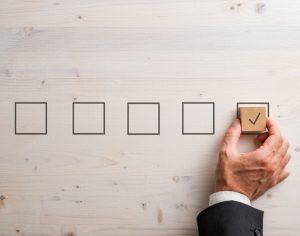This might seem like a very strange question, but let’s think about it for a moment.
Your phone wakes you up, gives you your morning news, helps you stay connected to your friends and family and keep up-dated with social media. Your phone probably plays you music, plans your journeys and routes to work. You might need a distraction at work, so you reach for your phone, and you might need your phone to do your job. In the evening, what do you do to help you relax? Play games, watch Netflix or scroll social media….. yes, on your phone.
You might think that you can turn your phone on and off when you choose, so you are in control of your life, not your phone, but do you?
So, do you live in a phone-centric world?
Obviously, this has not gone unnoticed by tech companies. There are Apps for everything.
The ‘more mature’ among us might remember the slogan from 2009 There’s an App for that. It was Apple’s notice to us that they are building Apps to help organise our life. These days there is an app for everything. The App notifications act as our daily reminders for everything, from controlling our sleep patterns and jotting down our dreams to organizing our work schedules, and even through to organizing the family events and the kids’ hobbies.
The risks to your personal data through your phone.
These Apps require subscriptions and our personal data to access them. We freely give out our mobile phone number, our email address, and other personal data so that we can benefit from the functionality of these applications.
Is your mobile phone number an identification (ID) number?
To enter a country you need a passport, which has a passport number. To drive a car, you need a driving license that carries an ID number. To pay your taxes or receive your salary you need a Social Security Number, or a National Insurance Number. These are 3 forms of ID that we keep private, and you probably have not memorized. It is highly likely that very few people know these numbers.
Everyone knows your phone number. It could be on your social media pages, on your website, business cards or used for multiple subscriptions, some of which you might have even forgotten about. You need it for your bank, to verify your email access, and gain access to all the Apps that organise your daily life.
It is a small world, and the inter-connectivity of the internet and mobile phones makes it even smaller. Do you remember the 6 Degrees of Separation study that was common a few years ago? It was proven that everyone in the world is just 6 or 7 hops away from each other. You know someone who knows someone who can connect you with someone else. This has many benefits, but also carries some risks.
Using the same number for your banking as you do when you are contacting strangers to buy services, or arrange meetings for work, or you give to your child’s football coach carries some risks.
How many people know your phone number?
You might look in your contact list and you might have over 100 contacts. How many of these contacts do you really know and speak to on a regular basis? But they all have your personal ID number. Your phone number. With the ease of Sim-Card cloning, is it at all possible for them to clone your number and to receive the same texts, calls and information that you need in your life?
Is there a simple and inexpensive way to reduce the risk here?
If you have a second phone number, you can give out your actual phone number only to people who you need to have it, and your 2nd number stays more personal to you. You secure your data by people not knowing your personal ID number. The phone number you use for your online banking is not a number that anyone else knows. The phone number that you use to access your emails and your social media is as private as your passport number.
How simple is it to get a 2nd phone number?
A quick review of several sites shows you how simple it can be to get a new number, and then you can log into all your financial institutions, change your number over and instantly, you are that bit safer in this digital age.
Whilst there are benefits to living in a Phone-Centric World, there are inherent risks. It pays to be aware of both sides to this juxtaposition so you can live safely in this phone-centric world.
This article comes courtesy of ConXhub, the UK’s leader in mobile technology. We empower ambitious SMEs and SaaS business owners with our patented mobile solutions.
“
Share via:


















































